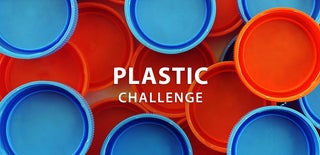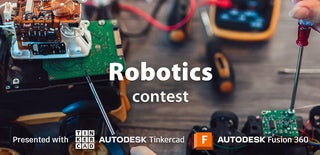Introduction: CHINESE TAKEOUT BOX - 3D PRINTED PLANTER
Chinese takeout boxes are iconic and recognisable by anyone who'd ever watched an American movie or a TV series. Unfortunately they are not widely available in Europe, we get out noodles delivered in a plastic containers. I decided to bring a bit of American-Chinese culture into my kitchen by 3D printing a plastic box and using it as a plant pot.
Supplies
3d printer and white PLA filament
filler putty https://www.ebay.co.uk/itm/162201063645?_trkparms=...
sanding paper
white spray-on filler https://www.ebay.co.uk/itm/142041016631?hash=item2...
spray-on white paint
decal paper (water slide transfer paper) https://www.ebay.co.uk/itm/232322269621?hash=item3...
PVA glue
Step 1: STL and Details
Step 2: Tapered Box
The takeout box is tapered, smaller at the bottom and larger at the opening.
Use a basic pyramid shape to create a tapered box.
Once ready, duplicate the box and move it aside, you will use it at the very end to hollow the takeout box.
Step 3: Side Flaps
Use a basic wedge shape to create flaps.
The wedge has to be large enough to cove more than a half of the side wall and should be 3-5mm thick.
You have to rotate it so it's flush to the side.
Trim excess wedge from the top and cut a small slice from the side.
Duplicate the shape, mirror it and move to the other side of the box. You will have to manoeuvre one flap by rotating it 1-3 degrees, so that one flap is overlapping the other flap.
Step 4: Top Flaps
Create a top flap, same width as the width of the takeout box, as long or as short as you want. 3-5mm thick.
Move it to the top of the box, duplicate it and arrange all 4 flaps.
Tilt each flap outwards (15-35 degrees), combine the flaps and the box and group it to create one object.
Use the basic tapered box shape you duplicated and set aside in step 2 to hollow the takeout box.
Step 5: Sizes, Shapes
The basic takeout box can be scaled up or down, as well as shaped as a cube or a rectangle, made taller or shorter to accommodate any plant pot.
Step 6: Smoothing PLA
I knew I'd have to do a lot of filling and sanding, so I didn't bother printing the boxed in high quality. 0.2 mm layer was good enough for me. 30% infill and 1.2mm walls.
Once printed, I sanded it roughly with a 40 grit and applied filler (I'm using white filler, so it's not too visible in the pictures) all over the box, as well as inside and outside flaps.
Sanded it with 80 and 120 grit and applied another filler, this one spray-on. Finished it off by lightly sanding it with a 240 and 320 sandpaper, then cleaned it with a wet towel and spray-painted two coats of white paint.
End result was incredibly smooth surfaces.
Step 7: Details- DECALS
Using decals is the easiest method and produces the best looking results. All you need is a printer and a sheet of decal paper with transparent backing.
# Find your design online, scale it down or up, print on normal paper first and check if it will fit the planter. Once you are sure it's scaled properly, print it on the decal paper in high quality.
# Decal paper has to be left out to dry the ink for 1-3 hours. After that, it has to be spray painted with a clear varnish to keep the ink from bleeding. When sealer is dry, you can cut the details out with scissors.
# Place the decal papers in a bowl of cold water (not warm and definitely not hot, I accidentally put one of them in warm water and it got destroyed) for 5-15 min until papers begin to separate and clear decal starts to slide off the protective paper.
# Paint a thin layer of PVA glue on the box and gently slide the decal off the protective paper and onto the layer of glue, use a brush to help with applying it straight and wrinkle-free.
# Leave it to dry and apply a clear sealer or varnish with a brush or a spray can.
Step 8: Details- PAINTING BY HAND
You can use acrylic paint to paint the design.
Use carbon paper to help trace the design onto the box and paint with a tiny tiny brush.
I don't recommend this method, unless you are a skilled artist. I'm not and look at the monstrosity I painted.
Step 9: Details- PRINT OUT
Last method is to just simply print the design on a regular piece of paper, cut it out as close to the boarders as possible and glue it with PVA glue.
It's obvious it's a print out due to different shades of white, but it will do the job and is hardly noticeable from afar.

Judges Prize in the
Plastic Challenge

















2 Comments
1 year ago
I love the idea and the different methods for applying the decals. I was wondering, do you need to coat the inside of the box or is the plastic non toxic to plants?
Best Answer 1 year ago
I used PLA, so it's not toxic and completely harmless to plants. You don't have to coat the inside with any varnish.